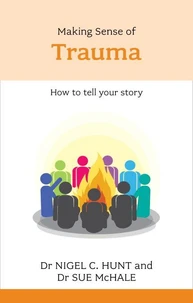Traumatic events are common, and range from road traffic accidents, through rape and sexual abuse, to disaster and war. While many people deal effectively with these experiences, a minority have severe problems, which are often manifested as post-traumatic stress disorder (PTSD). The book is aimed at those with PTSD and those who are caring for someone with the disorder. It includes a strong focus on wounded military personnel.
Topics include: understanding the symptoms including memory problems, avoidance and denial, emotional numbing, and hyperarousal, related disorders such as depression and substance abuse; traumatic memories and the underlying biology - how brain mechanisms are affected in the response to traumatic events. Treatments such as cognitive behavioural therapy and EMDR. Narrative approaches, whereby people develop their own stories about their traumatic experiences to help them put them into meaningful contexts; Drug techniques including anxiolytics and antidepressants, and the problems of prescribing drugs for such a complex disorder; Problems faced by carers; Vicarious or secondary trauma; Growing through experience - trauma from an alternative perspective, that of resilience and growth; Professional help - your GP, clinical psychologists and psychiatrists.
Traumatic events are common, and range from road traffic accidents, through rape and sexual abuse, to disaster and war. While many people deal effectively with these experiences, a minority have severe problems, which are often manifested as post-traumatic stress disorder (PTSD). The book is aimed at those with PTSD and those who are caring for someone with the disorder. It includes a strong focus on wounded military personnel.
Topics include: understanding the symptoms including memory problems, avoidance and denial, emotional numbing, and hyperarousal, related disorders such as depression and substance abuse; traumatic memories and the underlying biology - how brain mechanisms are affected in the response to traumatic events. Treatments such as cognitive behavioural therapy and EMDR. Narrative approaches, whereby people develop their own stories about their traumatic experiences to help them put them into meaningful contexts; Drug techniques including anxiolytics and antidepressants, and the problems of prescribing drugs for such a complex disorder; Problems faced by carers; Vicarious or secondary trauma; Growing through experience - trauma from an alternative perspective, that of resilience and growth; Professional help - your GP, clinical psychologists and psychiatrists.

 , qui est-ce ?
, qui est-ce ?